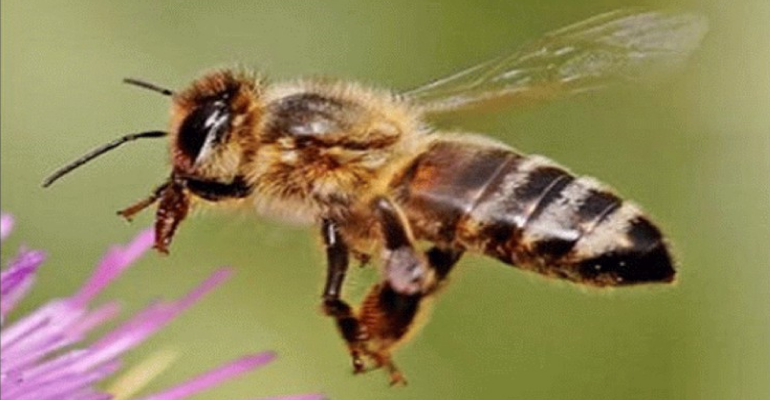Beware Because Bee Season Is Here
 According to the Douglas Fire Department, it has started receiving of calls regarding bees, as a result they have compiled a list of what to do to be safe around bees and what to do if attack.
According to the Douglas Fire Department, it has started receiving of calls regarding bees, as a result they have compiled a list of what to do to be safe around bees and what to do if attack.
The Douglas Fire Department has responded to 6 calls for people concerned about bees already this month. One of those calls involved bees stinging a dog. The dog was tied up, and by the time the Department was able to get the bees to stop attacking, it had been stung too many times, and it died.
Take some basic precautions to avoid problems with bees:
-Fill or cover and holes or cracks larger than one-eighth of an inch in their houses, sheds, or other outbuildings. If an opening needs to stay open cover it with a fine mesh screen.
-Keep clutter in their property to a minimum. Trash piles, wood piles, and similar places are natural places for bees to want to build hives.
-Inspect your property weekly. Listen for buzzing and watch for bees going into or out of an area. If you notice a buzzing sound or bees going in and out of an area repeatedly there is a good chance that there is a hive.
-Teach children of all ages to be respectful of bees and to stay away from hives or large groups of bees.
-If you do think you have a hive keep people away from the area. Contact a professional bee keeper or exterminator. They can be found online, in the phone book, or you can call or stop by the Douglas Fire Department for a list of numbers for professionals in the area.
-Do not attempt to exterminate the bees yourself. Close to 100 percent of the local honey bee population has some level of africanization (sometimes referred to as killer bees) which makes the bees aggressive and more likely to sting you in large numbers.
If you do find yourself near a hive:
-Bees will often start by “bumping” before they sting. If you have one or more bees flying up toward you or into you without stinging you they are giving you a warning to go away. You are probably close to a hive or swarm. Calmly, but quickly leave the area. Keep others away and call an exterminator.
-Teach children to respect all bees and avoid hives or swarms.
-Do not start swatting or killing bees just because they are near you. This will only make them madder or alert more bees to come to where you are. Leave the area quickly and calmly.
-One bee or few bees near flowering plants is not a hive. One or even a few bees flying around flowering plants are usually collecting pollen and are more interested in that then they are in you. Generally leave these bees alone and they will leave you alone.
-Bees are often moving through. If you see a large number of bees in a ball on the outside of a tree or other structure in the morning or evening, they are usually just resting for the night. Often you can keep people out of the area and they will fly away when it gets warm enough. If they stay for more than a day then they may be making a home. Call a bee keeper or exterminator.
If you are being stung:
-Cover your face and head. Use a towel, or even your shirt to cover your head.
-Run. Get away from the area as quickly as possible. Africanized bees may chase you for as far as one-quarter of a mile.
-Do not jump in the water. The bees will wait for you.
-Get inside a secured area. Get in a closed car or building. Remember, many businesses have automatic doors so running in to a business will just bring the bees to more people causing more problems. Get inside a building where you can secure the door.
-Remove stingers. Use a blunt object to remove stingers by using a sweeping motion to push the stinger out. Do not use fingers or tweezers to pull the stinger out. Any venom left in the stinger will get pinched into the wound.
– If you are stung several times, have a known bee allergy, or feel you are having an allergic reaction (difficulty breathing, chest tightness, significant swelling) call 911.
If bees are actively stinging a person or animal or are creating some other sort of emergency call 911 right away.